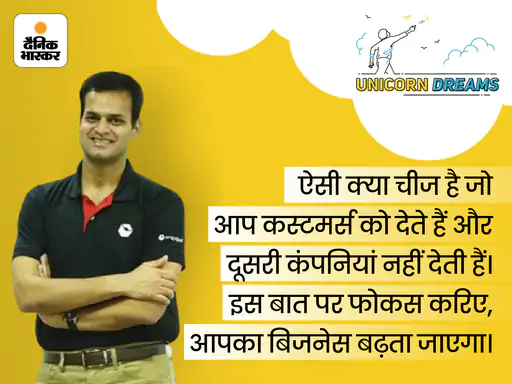Startup, the search result came as soon as it was entered in Google - About 3,01,00,00,000 results (0.61 seconds). If you enter one more time, then more result than this in less seconds. Yeh key word hai hi aisa… Everyone knows, yet wants to know. And if you start a startup, then the dream of becoming a unicorn, that is, the desire to become a company worth more than $ 1 billion.
This is a very hardworking dream and our share in these dreams comes true. So we are starting 'Unicorn Dreams with Kushan Agarwal'. This series will be and start with Rohit Bansal. Same Rohit Snapdeal. The things are also about the company, but before that talk of those things by which the company was formed, grew and became successful. So start?…
Kushan: When you were studying with Kunal in Delhi Public School RK Puram, were you guys thinking of forming Snapdeal?
Rohit Bansal: I grew up in Punjab. Came to Delhi in 11th class. There was a friendship with Kunal and gradually we became close friends. We had decided that we want to work together later, but did not know when and which work to do.
Kushan: You studied at IIT Delhi, and Kunal studied at Business School in Pennsylvania. Jobs were also going on at different places. How did the idea of doing business come about together?
Rohit Bansal: We wanted to work together from the beginning. Even when Kunal went to America, we remained in contact with each other. Used to talk via email. We used to meet whenever he came to India. After that both of them completed their studies and we started working.
After about 6 months, Kunal came to India for his brother's wedding. We both met. Kunal asked me that we had to do business together, so what is your plan, when to start.
I said that now I want to work for 2-3 years, then I intend to go to America and do MBA. After that think about business. Then Kunal said that when you have to start your own work then why waste the time of 6-7 years.
Since we were both very young. Our expenses were also less, both of them were not even married and there was no financial pressure of any kind. So decided let's start.
After that we started thinking of some ideas as to what we can do. The funny thing is that the Snapdeal it is today was not our first business. In the year 2008, we started selling printed coupon booklets inspired by an American company. We worked on it for a year. We had expected it to be successful, but soon after launch, we realized that no one wants to buy coupons.
After that we kept working on different ideas and after 3-4 years i.e. in 2012, the idea of Srapdeal came.
Kushan: What was the biggest fear when you decided to quit your job and start a business? Not worried about money?
Rohit Bansal: We both studied well in college and were doing good jobs. So I believed in myself. In the worst case, if nothing happens for three-four years, the business fails. Even then we will be able to do something on the basis of our education and experience.
Kushan: How can a common man convert his innovative idea into business?
Rohit Bansal: I think starting a business is not difficult. The most important thing is to start. It is not possible to achieve anything without it. Once you start a work and give your 100% to it, the path is set for itself. Therefore, it should not take a lot of time to start. If you think too much, you will not be able to do anything.
Kushan: It is difficult to get funding in the beginning of a new business. How did you gain the trust of investors?
Rohit Bansal: The first investor we got was Kunal's senior, who used to work at Microsoft. He had never come to India. We never imagined that someone would give us so much money, who doesn't already have any business track record. They had given us a fund of Rs 40 lakh.
Kushan: The journey of Snapdeal is seen in two phases. One is pre-2017 snapdeal and the other post-2017 snapdeal. What have changed in Snapdeal after 2017? Where is your current focus and what are your plans in the coming days?
Rohit Bansal: After 2017, we focused on the value and lifestyle segment. From clothing to home-kitchen, beauty and personal care products. If we talk about India, then all these products are available in the local market. Their shopping is less in malls.
The demand within this category is high, the market is huge, but there is an issue of quality. There is a dearth of brands within this price category. Since now customers are slowly shifting online. That's why we are targeting such customers.
Kushan: How to survive small players in front of big business in any sector?
Rohit Bansal: Look, the market in India is huge and it is not as if a single company has the entire market share. I think the most important thing is how your company differentiates itself from other companies and makes itself unique. What is one thing that you offer to customers that other companies don't?
If you focus on it and focus continuously, then surely your business will grow and there will be no fear of competition.


Comments
Post a Comment